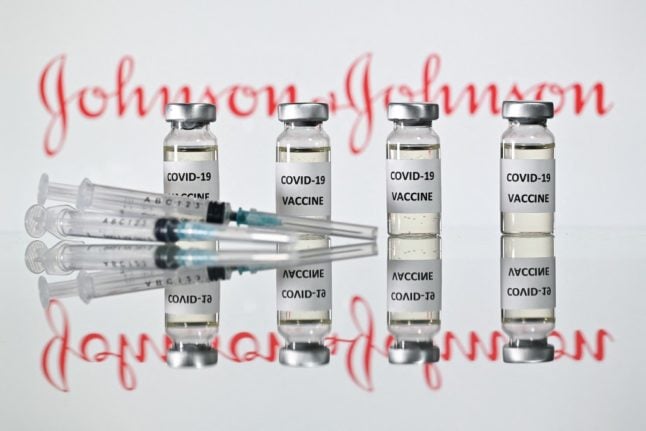The Covid-19 Vaccine Janssen, produced by American pharmaceutical company Johnson and Johnson, was approved by Swissmedic on Monday March 22nd.
However, as the government has declined to purchase the vaccine to incorporate it into its vaccine scheme, it is not expected to be publicly available.
On Tuesday, Switzerland’s public broadcaster SRF claimed the vaccine would however be available for private companies to vaccinate their employees.
Johnson and Johnson have denied this, saying their vaccine will not be made available to private entities.
Here’s what you need to know.
Switzerland approves Johnson and Johnson – but will not purchase any doses
On Monday, the Swiss Agency for Therapeutic Products, Swissmedic, gave provisional approval for the vaccine manufactured by Johnson and Johnson (Covid-19 Vaccine Janssen).
This made it the third vaccine to be approved in Switzerland after the jabs from Moderna and Pfizer/BioNtech. Unfortunately however, this does not mean the vaccine will be available to the Swiss public anytime soon.
While Swissmedic has approved the vaccine for use in Switzerland, the Swiss government is yet to sign a vaccine supply contract with the manufacturer.
As The Local Switzerland reported yesterday, this is primarily because it would only be delivered in the summer “and that is too late for us”, said Nora Kronig, vice president of the Federal Office of Public Health (FOPH).
READ MORE: Why Switzerland’s approval of the Johnson and Johnson jab will not speed up vaccinations
FOPH had previously announced the country aims to inoculate “everyone who wants it” by summer.
Kronig also said Switzerland is focusing on Pfizer / BioNtech and Moderna vaccines which use the so-called mRNA technology, “which is more effective, especially for vulnerable people”.
Johnson & Johnson vaccine uses a different technology.
Does this mean no Johnson and Johnson in Switzerland?
In a report on March 23rd Swiss public broadcaster SRF claimed any private entity wanting to import the vaccine can do so.
“This means that a company in Switzerland, for example, can now buy this vaccine and have its staff vaccinated,” the media site claimed.
“At your own expense, but quickly and without any bureaucratic hurdles from the canton and federal government.”
However, Thomas Moser, the Head of External Communications with Johnson and Johnson in Switzerland, told The Local Switzerland on Tuesday afternoon that the report was “incorrect” and as yet the vaccine would not be available to private entities.
“In the current situation, J&J works exclusively with national and supranational authorities as well as international organisations such as COVAX to make our vaccine available,” he said,
“This means that even with Swissmedic approval, direct orders will not be possible for the time being.”
As at Tuesday afternoon, the SRF report remained unchanged.
Note: This article was changed on Tuesday afternoon to reflect the clarifications made by Johnson and Johnson directly to The Local Switzerland.



 Please whitelist us to continue reading.
Please whitelist us to continue reading.
Member comments